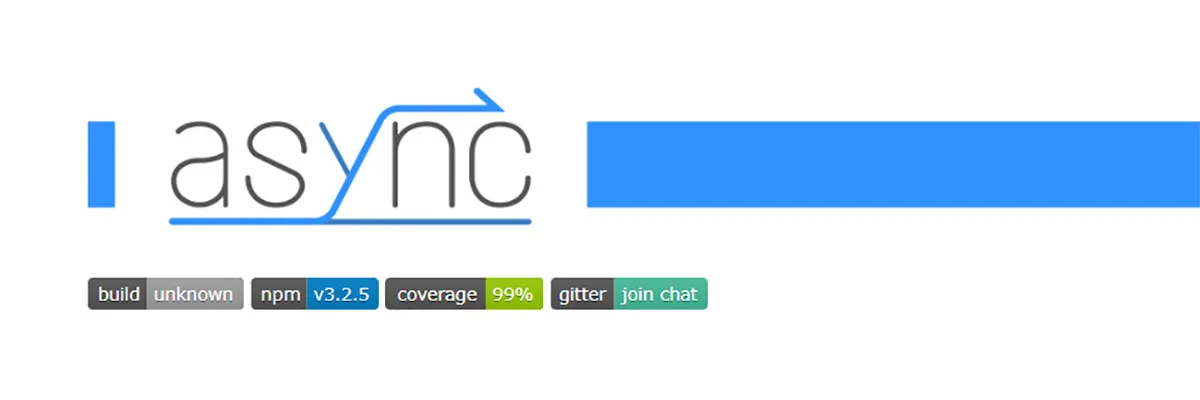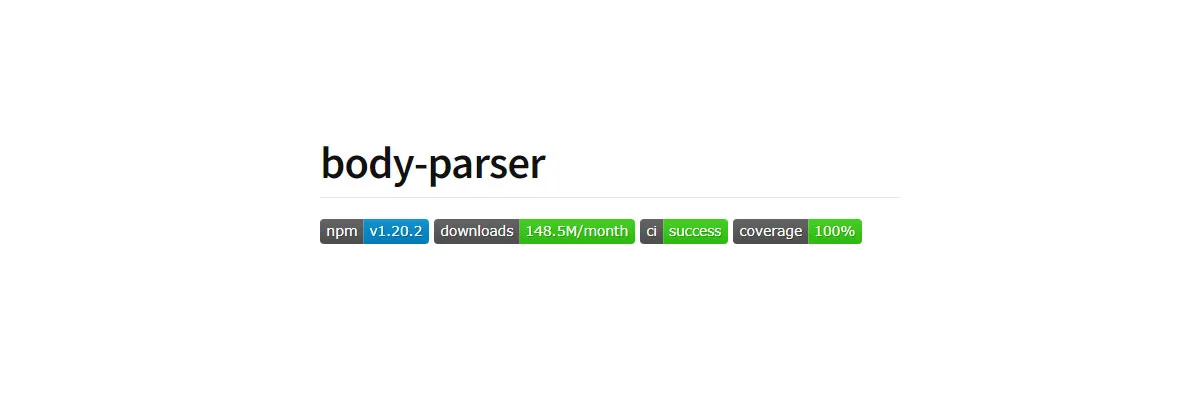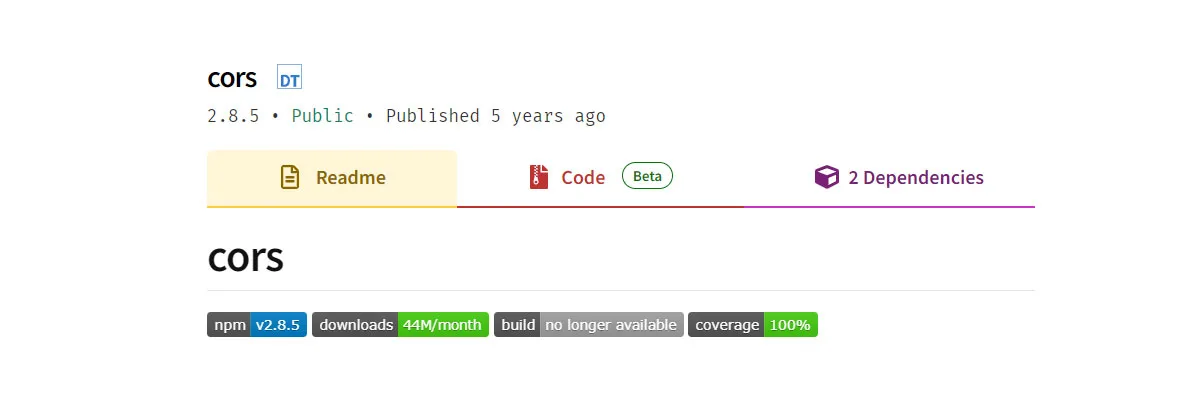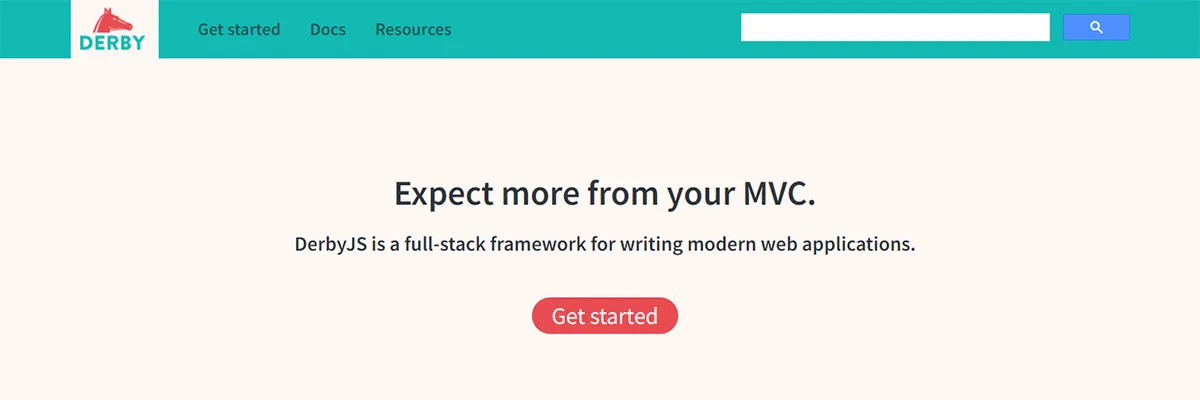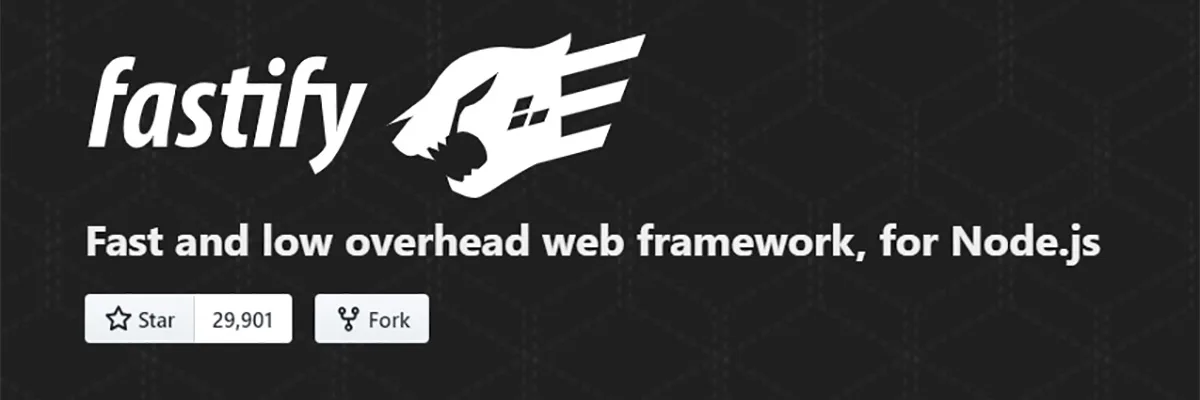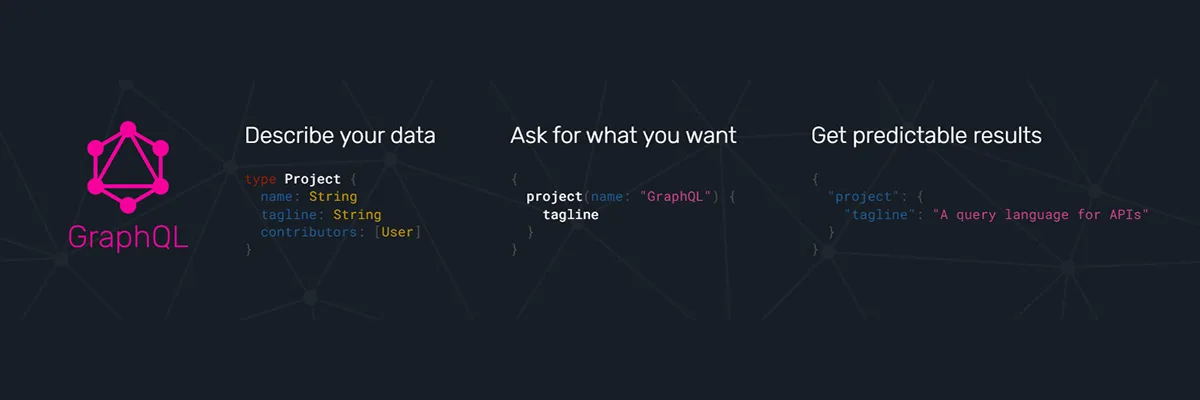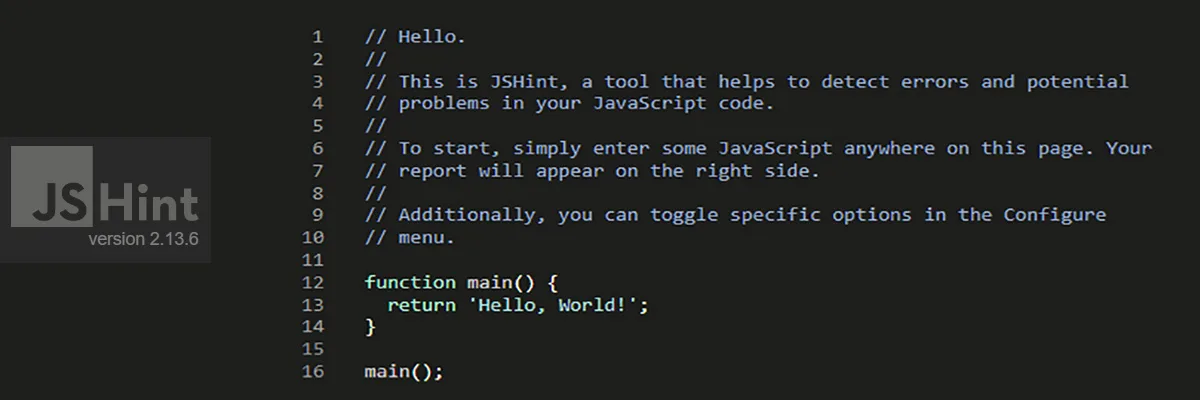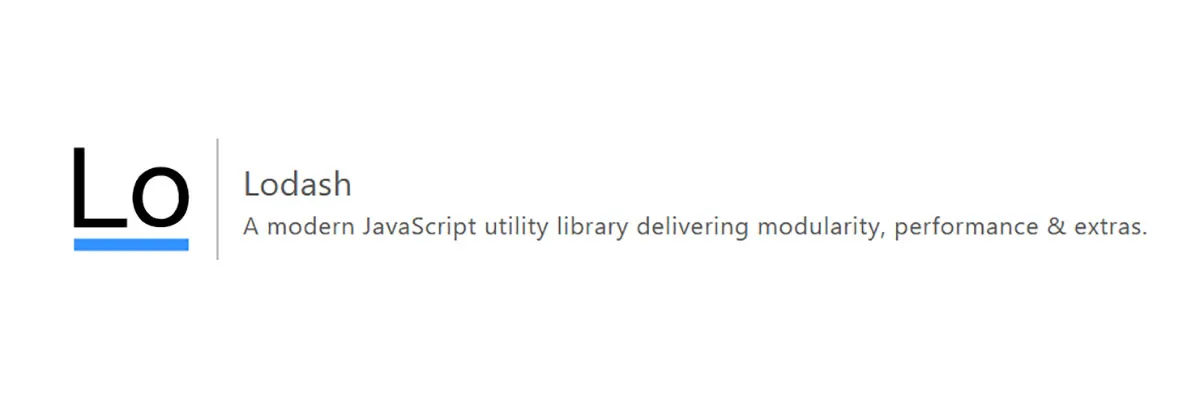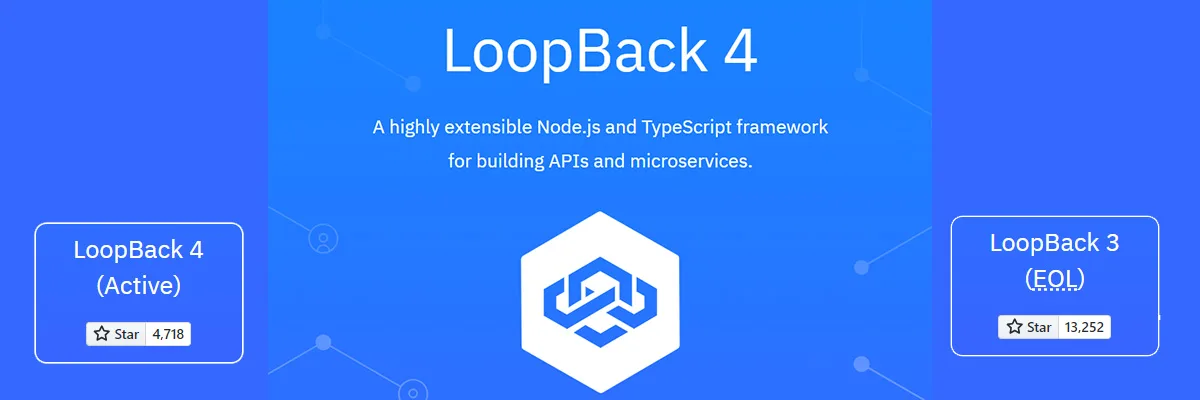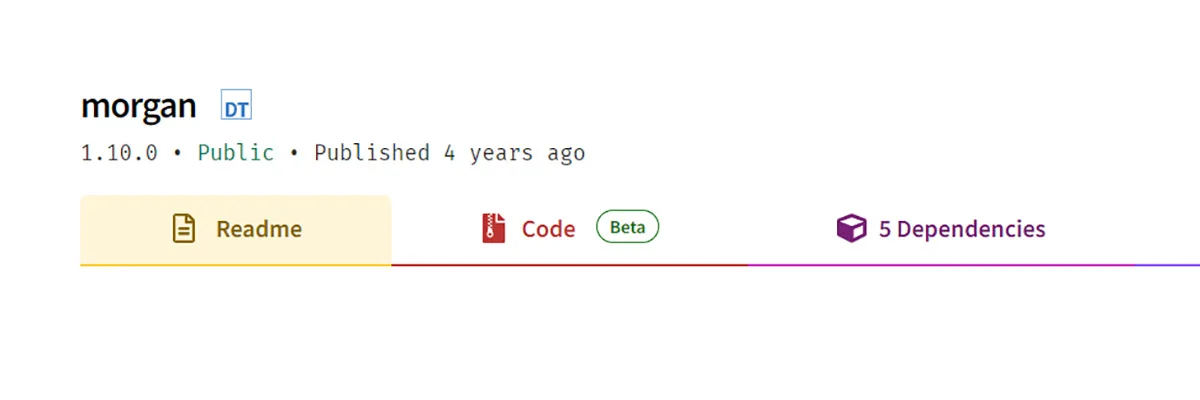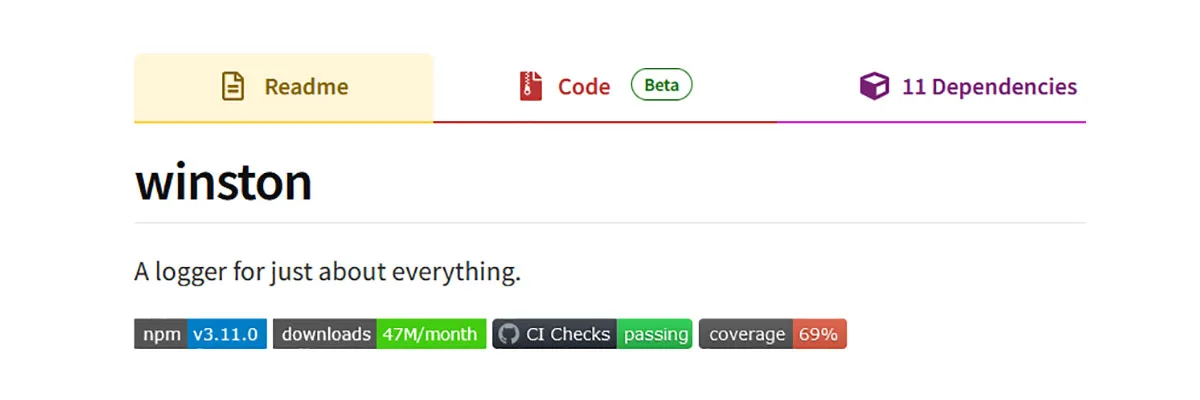Best NodeJS Libraries in 2024
Node.js has revolutionized web development with its asynchronous event-driven architecture and the vast ecosystem of libraries and packages available to developers. These libraries extend Node.js’s functionality, allowing developers to build robust and scalable applications with ease. In this post, we’ll briefly examine some of the essential Node.js libraries that every developer should be familiar with.
Best Ready to Use Web Themes & Templates
Bootstrap 5 Templates
Bootstrap One Page Templates, Bootstrap 5 Templates, Free Bootstrap Templates
Node.js libraries play a crucial role in simplifying and accelerating the development of web applications and services. The libraries mentioned in this post represent just a fraction of the vast ecosystem of tools and packages available to Node.js developers.
By leveraging these libraries and exploring others, developers can unlock new possibilities and build innovative solutions that push the boundaries of what is possible with Node.js. Whether building a small personal project or a large-scale enterprise application, the rich selection of Node.js libraries ensures you have the tools you need to succeed.
Async
Async Node.js, a versatile utility module, offers a comprehensive set of functions designed to simplify and optimize asynchronous JavaScript programming. Its benefits for developers building scalable and responsive applications. Async Node.js provides the tools and utilities necessary to tackle asynchronous challenges confidently. Initially crafted with Node.js in mind and easily installable via ‘npm I async,’ it seamlessly extends its capabilities to browser environments. Some critical features of Async Node.js are:
- Parallel Task Execution: Async Node.js allows developers to execute multiple asynchronous tasks in parallel, maximizing CPU utilization and reducing overall execution time. This feature is handy for handling independent tasks concurrently, such as making various HTTP requests or processing large datasets.
- Control Flow Management: With Async Node.js, developers can manage the flow of asynchronous operations using functions like async. Series, async. Parallel and async. Waterfall. These control flow functions simplify complex workflows by orchestrating the execution of asynchronous tasks sequentially or similarly, depending on the application’s requirements.
- Error Handling: Async Node.js provides robust error-handling mechanisms, including the ability to handle errors gracefully and propagate them through the asynchronous call stack. AND It ensures that errors are correctly caught, logged, and run, preventing them from crashing the application or leaving it in an inconsistent state.
- Utilities for Common Tasks: Async Node.js includes a variety of utility functions for everyday asynchronous tasks, such as iterating over arrays, processing collections, and handling callbacks. These utilities help streamline development workflows and promote code reuse across projects, saving developers time and effort.
- Compatibility with Node.js and Browsers: Async Node.js is designed to work seamlessly with Node.js and web browsers, making it a versatile tool for building applications across different environments. Developers can leverage Async Node.js to write asynchronous code that runs efficiently on the server and client-side without requiring additional dependencies or modifications.
Axios
Axios, a popular Node.js library, addresses this need by offering a simple yet powerful solution for handling HTTP requests. With its promise-based API, concise syntax, and rich feature set, Axios simplifies sending and handling HTTP requests, making it an essential tool for web developers. And it helps to build client-side or server-side applications. Axios offers the flexibility and reliability to interact effortlessly with external APIs and services. Some fundamental features of Axios are:
- Promise-based API: Axios provides a promise-based API for making HTTP requests, allowing developers to write asynchronous code more intuitively and concisely. Promises simplify error handling and facilitate chain multiple HTTP requests, improving code readability and maintainability.
- Browser and Node.js Support: Axios is designed to work seamlessly in browser and Node.js environments, making it a versatile choice for web developers. Whether you build client-side applications with frameworks like React or Angular or server-side applications with Node.js, Axios offers consistent and reliable HTTP request capabilities.
- Concise Syntax: With Axios, making HTTP requests is as simple as calling a function with a URL and optional configuration parameters. The concise syntax of Axios reduces boilerplate code and makes it easy to perform everyday tasks like sending headers, setting request methods, and handling response data.
- Interceptors: Axios provides a function that can intercept HTTP requests and responses before they are sent or processed. Interceptors help add custom headers, log request/response data, or handle global errors across multiple requests.
Adonis
AdonisJS, a powerful and feature-rich Node.js framework, is popular among developers for its elegant syntax, scalability, and productivity-enhancing features. With its full-stack MVC architecture, expressive ORM, command-line interface, authentication system, middleware support, and real-time communication capabilities, AdonisJS provides developers with the tools and features they need to build robust and feature-rich web applications efficiently. And productivity-enhancing features necessary to succeed in today’s competitive web development landscape. Some essential features of AdonisJS are:
- Full-Stack MVC Architecture: AdonisJS follows the Model-View-Controller (MVC) architectural pattern, providing a structured and organized approach to building web applications. With AdonisJS, developers can separate concerns, modularize code, and maintain clean and maintainable codebases.
- Expressive ORM: AdonisJS comes with Lucid, its built-in ORM (Object-Relational Mapping) system, which simplifies database interactions and makes it easy to work with relational databases like MySQL, PostgreSQL, and SQLite. Lucid offers a fluent and expressive query builder interface, allowing developers to perform database operations efficiently.
- Command-Line Interface (CLI): AdonisJS provides a powerful command-line interface (CLI) for scaffolding projects, generating code, and managing dependencies. The CLI automates everyday development tasks and accelerates project setup, enabling developers to focus on building features rather than configuring boilerplate code.
- Authentication and Authorization: AdonisJS includes built-in support for authentication and authorization, making it easy to implement user authentication, registration, and access control in web applications. AdonisJS’s authentication system provides features like session management, token-based authentication, and password hashing.
Body Parser
Body-parser is a versatile and efficient Node.js library for parsing HTTP request bodies in web applications. With its middleware-based approach, support for various content types, streaming capabilities, customizable options, and seamless integration with Express.js, body-parser simplifies request parsing and data extraction in Node.js applications. It helps build RESTful APIs, web servers, or microservices; body-parser offers the features and flexibility you need to handle request bodies effectively and efficiently. A few critical features of body-parser are:
- Middleware for Parsing Request Bodies: body-parser provides middleware functions for parsing various types of request bodies, including URL-encoded, JSON, and multipart/form data. These middleware functions intercept incoming requests and parse the request bodies automatically, making the parsed data available in the ‘req—body’ object for further processing.
- Support for Different Content Types: body-parser supports parsing request bodies in different content types, including URL-encoded data (application/x-www-form-urlencoded), JSON payloads, and multipart form data (multipart/form-data). This flexibility allows developers to easily handle a wide range of request formats and data structures.
- Streaming and Buffering: The body parser utilizes streaming and buffering techniques to parse request bodies efficiently, minimizing memory usage and improving performance. By processing request bodies incrementally as data is received, the body parser can handle large payloads and file uploads without buffering the entire request body in memory.
- Customizable Options: body-parser provides customizable options for configuring parsing behavior, allowing developers to fine-tune; options include limits for request body size, enabling strict parsing mode, and specifying extended URL encoding
Browserify
Browserify, a popular Node.js library, offers a solution by allowing developers to use Node.js-style and dependency management techniques in the browser. Browserify provides a comprehensive solution for bundling and organizing JavaScript code in modern web applications. And it helps build a small prototype or a large-scale web application. Browserify provides the tools and features to streamline development workflows and build robust and maintainable client-side JavaScript applications. Some key features of Browserify are:
- CommonJS Compatibility: Browserify enables developers to use CommonJS-style modules in client-side JavaScript applications, the same format used in Node.js. It allows developers to write modular code and organize their codebase into smaller, reusable modules, improving maintainability and scalability.
- Dependency Management: Browserify automatically resolves and bundles dependencies required by each module, eliminating the need for manual script tags and ensuring all dependencies are included in the final bundle. It simplifies dependency management and reduces the risk of missing or outdated dependencies in the application.
- Transformations and Plugins: Browserify supports transformations and plugins, allowing developers to preprocess or modify code during bundling. It includes features like transpiling ES6/ESNext code to ES5 using Babel, minifying code for production, and bundling assets like CSS files and images. Transformations and plugins extend the capabilities of Browserify and enable developers to customize the bundling process to suit their needs.
- Integration with npm: Browserify seamlessly integrates with npm, the package manager for JavaScript, allowing developers to install and manage third-party dependencies easily. By leveraging the vast ecosystem of npm packages, developers can quickly add functionality to their applications and reduce development time.
CORS
CORS Node.js libraries are crucial in enabling secure cross-origin communication in web applications. With features like middleware integration, flexible configuration, pre-flight requests handling, support for CORS headers, cross-domain communication, error handling, and logging, these libraries simplify the implementation of CORS policies and ensure compliance with browser security standards. It helps build APIs, single-page applications, or microservices with Node.js; CORS libraries provide the tools and features to enforce CORS policies and secure your web applications against cross-origin attacks. Some pivotal features of CORS are:
- Middleware Integration: CORS Node.js libraries typically provide middleware and are easily integrated into Express.js or other Node.js web frameworks. This middleware handles CORS-related headers and requests, allowing developers to enforce CORS policies with minimal configuration.
- Flexible Configuration: CORS libraries offer flexible configuration options for defining CORS policies based on origin, methods, headers, and other parameters. Developers can customize CORS policies to meet the specific requirements of their applications, ensuring secure and controlled access to resources.
- Pre-flight Requests Handling: CORS libraries automatically handle pre-flight requests (OPTIONS) sent by browsers to determine whether cross-origin requests are allowed. Simplifies the implementation of CORS policies and ensures compliance with browser security mechanisms.
- Support for CORS Headers: CORS libraries manage the generation and parsing of CORS headers, including Access-Control-Allow-Origin, Access-Control-Allow-Methods, Access-Control-Allow-Headers, and Access-Control-Allow-Credentials. It ensures that the appropriate CORS headers are included in HTTP responses, allowing browsers to enforce CORS policies.
Derby
DerbyJS is a versatile Node.js framework for building real-time web applications with ease. With features like real-time data synchronization, MVC architecture, automatic HTML rendering, real-time collaboration features, client-side routing, and built-in authentication and authorization, DerbyJS provides developers with the tools and capabilities they need to build modern and scalable real-time web applications. Whether you’re making chat apps, collaborative editing tools, multiplayer games, or real-time dashboards, DerbyJS offers the flexibility and ability to transform your ideas into reality. A few essential features of DerbyJS are:
- Real-Time Data Synchronization: DerbyJS provides built-in support for real-time data synchronization, allowing multiple clients to update and sync data. This feature is essential for collaborative applications like chat apps, collaborative editing tools, and multiplayer games, where users expect instant updates and seamless synchronization across devices.
- Model-View-Controller (MVC) Architecture: DerbyJS follows the Model-View-Controller (MVC) architectural pattern, providing a structured and organized approach to building web applications. With a clear separation of concerns, developers can maintain clean and maintainable codebases, making it easier to collaborate and scale the application as it grows.
- Automatic HTML Rendering: DerbyJS automatically renders HTML on the server and client side, ensuring consistent rendering and improving performance. This eliminates the need for manual DOM manipulation and reduces the risk of discrepancies between server-rendered and client-rendered content.
- Real-Time Collaboration Features: DerbyJS offers features for real-time collaboration, such as presence indicators, conflict resolution, and optimistic UI updates. These features enable developers to build collaborative applications that support simultaneous editing by multiple users, with conflict resolution mechanisms to handle conflicting changes gracefully.
Dotenv
Dotenv is a versatile and lightweight Node.js library for managing environment variables and configuration settings. With features like environment variable loading, support for .env files, zero-dependency footprint, secure handling of sensitive information, cross-platform compatibility, and integration with npm scripts, dotenv simplifies the process of managing configuration variables and enhances the security and flexibility of Node.js applications. It helps build small-scale projects or large-scale applications; dotenv provides the tools and capabilities to manage environment variables quickly and confidently. Some key features of dotenv are:
- Environment Variable Loading: dotenv allows developers to define environment variables in a .env file and automatically loads them into the Node.js environment. Simplifies the process of managing configuration variables, as developers can centralize all environment-specific settings in a single file and load them effortlessly into their applications.
- Support for .env Files: dotenv supports using .env files, which are plain text files containing key-value pairs of environment variables. Developers can define variables like PORT, DATABASE_URL, and API_KEY in the .env file, making it easy to customize application settings based on the environment (e.g., development, staging, production).
- Zero-Dependency: dotenv is a zero-dependency library with no external dependencies. It is easily integrated into any Node.js project without adding additional overhead. This lightweight footprint makes dotenv an ideal choice for projects where simplicity and performance are priorities.
- Secure Handling of Sensitive Information: dotenv helps developers securely manage sensitive information like API keys and database credentials by storing them in .env files.
Express
Express.js is a robust and widely used Node.js framework that simplifies the process of building web applications and APIs. Offering a minimalist and unopinionated approach, Express.js empowers developers to create flexible and scalable applications easily. Express.js provides developers with the tools and flexibility they need to develop scalable and maintainable applications—A few climactic features of Express are:
- Middleware: Express.js features a robust middleware system that allows developers to execute code at various points during the request-response cycle. Middleware functions can handle logging, authentication, data validation, and error-handling tasks, enabling developers to modularize their code and enhance application functionality.
- Routing: Express.js provides a simple and intuitive routing mechanism for defining routes and handling HTTP requests. Developers can define route handlers for different HTTP methods and URL patterns, making creating RESTful APIs and web applications with clean and organized code easy.
- Template Engines: Express.js supports various template engines, including Pug (formerly Jade), EJS, Handlebars, and Mustache, allowing developers to generate dynamic HTML content on the server. Template engines enable developers to create reusable and modular views, improving code maintainability and facilitating the development of server-side rendered applications.
- Static File Serving: Express.js includes middleware for serving static files, such as HTML, CSS, JavaScript, and images, from a specified directory. This feature simplifies serving fixed assets and enables developers to create single-page applications (SPAs) and web applications with client-side routing and assets.
Fastify
Fastify is a high-performance web framework for Node.js, offering a wide range of features for building fast, scalable, and reliable web applications and APIs. With lightweight architecture, schema-based validation, asynchronous middleware support, dependency injection, plugin system, and schema-based serialization, Fastify empowers developers to build blazing-fast applications without compromising reliability or maintainability. A few critical features of Fastify are:
- Lightweight and Performant: Fastify is built from the ground up with performance in mind, making it one of the fastest web frameworks available for Node.js. It achieves impressive performance benchmarks by leveraging modern JavaScript features, optimizing memory usage, and minimizing overhead.
- Schema-Based Validation: Fastify provides built-in support for schema-based request validation, allowing developers to define the shape of incoming requests using JSON Schema. Ensures incoming data is validated against predefined rules, improving reliability and security.
- Asynchronous Middleware Support: Fastify fully supports asynchronous middleware, allowing developers to write asynchronous request handlers and middleware functions using asynchronous/await syntax. It makes integrating asynchronous operations like database queries and external API calls into Fastify applications easy without blocking the event loop.
- Dependency Injection: Fastify has built-in support for dependency injection, enabling developers to inject dependencies into request handlers and middleware functions. And promote modularity and testability by decoupling components and making it easier to write unit tests.
Feathers
Feathers is a modern and versatile web framework for Node.js that provides tools and features to simplify and accelerate the development of real-time applications and APIs. Feathers focuses on simplicity, flexibility, and scalability, enabling developers to quickly build robust and scalable applications. It is good to make a chat application, a RESTful API, or a complex real-time application; Feathers empowers you to convey ideas with vitality. Some fundamental features of Feathers are:
- Real-Time Communication: Feathers provides built-in support for real-time communication through WebSockets, allowing developers to build interactive and collaborative applications that update in real time. This feature is essential for building chat applications, live dashboards, multiplayer games, and other real-time applications.
- RESTful APIs: Feathers makes it easy to create RESTful APIs for accessing and manipulating data, thanks to its built-in support for RESTful routing and middleware. Developers can define routes, controllers, and middleware to handle HTTP requests and responses, making it easy to build robust and scalable APIs.
- Service-Oriented Architecture: Feathers adopts a service-oriented architecture; its application is organized functionality. Into services, each responsible for handling specific tasks or operations. This modular approach promotes code reusability, maintainability, and scalability, making developing and maintaining complex applications more accessible.
- Authentication and Authorization: Feathers provides built-in support for authentication and authorization, making it easy to implement user authentication, registration, and access control in applications. To secure their applications, developers can choose from various authentication strategies, including local authentication, OAuth, JWT, and more.
GraphQL
GraphQL Node.js libraries provide developers powerful tools and features for building flexible and efficient APIs. With support for SDL schema definition, query execution, type safety, resolver functions, middleware and plugins, and integration with data sources, GraphQL Node.js libraries empower developers to design and implement GraphQL APIs that meet the needs of their applications. Whether building a simple API or a complex data-driven application, GraphQL Node.js libraries offer the flexibility and scalability you need to succeed in today’s fast-paced development landscape. Some key features of GraphQL are:
- Schema Definition Language (SDL): GraphQL Node.js libraries typically support defining schemas using the GraphQL Schema Definition Language (SDL). SDL allows developers to define types, queries, mutations, and subscriptions in a declarative and concise syntax, making it easy to define the shape of the API and the available operations.
- Query Execution: GraphQL Node.js libraries handle the execution of GraphQL queries, including parsing incoming requests, validating queries against the schema, and executing resolvers to fetch data from the underlying data sources. This process is optimized for performance and efficiency, allowing developers to retrieve data with minimal overhead.
- Type Safety and Validation: GraphQL Node.js libraries enforce type safety and schema validation, ensuring incoming queries conform to the defined schema and the returned data matches the expected types. It helps prevent runtime errors and improves the reliability and robustness of the API.
- Resolver Functions: Resolver functions are responsible for fetching data for GraphQL queries, mutations, and subscriptions. GraphQL Node.js libraries provide mechanisms for defining resolver functions and mapping them to the corresponding fields in the schema. It allows developers to encapsulate business logic and data-fetching logic in a modular and composable manner.
Gulp
Gulp is a versatile and powerful task runner for Node.js that simplifies and automates various development tasks. With features such as task running, code compilation and transformation, stream-based processing, watch mode, a vibrant plugin ecosystem, and code quality optimization, Gulp empowers developers to streamline their workflow and focus on building high-quality applications. Whether compiling code, optimizing assets, or enforcing code quality standards, Gulp provides the tools and capabilities to automate your development process quickly and efficiently. Some essential features of gulp are:
- Task Runner: Gulp is primarily a task runner that allows developers to define and automate repetitive tasks. Tasks can be determined using JavaScript and executed sequentially or in parallel, making it easy to create complex build processes.
- Code Compilation and Transformation: Gulp simplifies the process of compiling and transforming code by providing a wide range of plugins for tasks such as compiling Sass to CSS, transpiling JavaScript with Babel, and optimizing images. These plugins can be easily integrated into Gulp tasks, reducing the need for manual intervention.
- Stream-Based Processing: Gulp uses a stream-based processing model, which allows developers to manipulate files as streams and chain multiple operations together. It enables efficient processing of large files and reduces memory consumption compared to traditional file-based processing.
- Watch Mode: Gulp includes a watch mode that monitors files for changes and automatically reruns specified tasks when changes are detected. It allows developers to maintain a fast development cycle by instantly applying modifications during development.
Hapi
Hapi is a versatile and powerful Node.js framework for building web applications and APIs. With flexible routing, plugin architecture, validation and input sanitization, configuration management, error handling, and security features, Hpi provides developers with the tools and capabilities to streamline their Node.js development workflows and build robust and secure server-side applications. A simple API or a complex web application, hapi empowers you to bring ideas to life quickly and confidently. Some key features of Hapi are:
- Routing: Hpi provides a flexible and declarative routing system that allows developers to define routes for handling HTTP requests. Routes can be configured with various options, including route parameters, request validation, authentication requirements, and response handling, making it easy to implement complex request-response workflows.
- Plugin Architecture: Hpi features a robust plugin architecture that allows developers to extend and customize the framework’s functionality easily. For features, plugins are also used, such as authentication, caching, logging, validation, and more, making it easy to tailor hapi to the specific requirements of each project.
- Validation and Input Sanitization: Hpi includes built-in support for request validation and input sanitization, allowing developers to ensure that incoming data meets specific criteria before processing. It helps prevent security vulnerabilities such as injection attacks and ensures the integrity of data handled by the application.
- Configuration Management: Hpi provides robust support for configuration management, allowing developers to define and manage application settings in a structured and centralized manner. Configuration can be stored in various formats, including JSON, YAML, and environment variables, making it easy to customize application behavior based on different environments.
Jest
Jest is a powerful and versatile testing framework for Node.js, offering a wide range of features for easy writing and executing tests. With its built-in test runner, assertion library, mocking and spying capabilities, snapshot testing, code coverage reporting, and parallel test execution, Jest provides developers with the tools and capabilities they need to write robust and reliable tests for their Node.js applications. Jest empowers you to ensure your code’s quality and reliability confidently. Some essential features of Jest are:
- Built-in Test Runner: Jest has a built-in test runner that executes test suites and individual test cases. It automatically finds and executes test files in your project, making it easy to organize and run tests without additional configuration.
- Assertion Library: Jest includes a built-in assertion library that provides a wide range of assertion methods for verifying the behavior of your code. These assertion methods are expressive and easy to read, allowing developers to write clear and concise test cases.
- Mocking and Spying: Jest provides powerful copying and spying capabilities that allow developers to create mock objects and spies to isolate and test individual code components. It helps simplify testing complex interactions between different parts of the codebase.
- Snapshot Testing: Jest supports snapshot testing, which allows developers to capture the output of a component or function and compare it against a stored snapshot. It makes it easy to detect unexpected changes in the production of your code and ensure that it remains consistent over time.
JSHint
JSHint is a powerful static code analysis tool for JavaScript that helps developers maintain code quality and adhere to coding standards in their Node.js projects. With features such as static code analysis, configurable options, integration with build tools, reporting and feedback, community standards, and extensibility, JSHint provides developers with the tools and capabilities they need to improve code quality and maintainability. Working on a small personal project or a large-scale enterprise application, JSHint empowers you to write cleaner, more reliable code with confidence. Some key features of JSHint are:
- Static Code Analysis: JSHint performs static code analysis on JavaScript files to identify potential errors and issues. It checks for syntax errors, undefined variables, unused variables, missing semicolons, and other common mistakes that could cause runtime errors or unexpected behavior.
- Configurable Options: JSHint provides a wide range of configurable options that allow developers to customize the tool’s behavior to suit their specific requirements. These options include settings for enforcing coding conventions, controlling strict mode behavior, and specifying environments (e.g., browser, Node.js) to support.
- Integration with Build Tools: It is easily integrated into build tools and development workflows, such as Grunt, Gulp, and npm scripts. It allows developers to automate the running of JSHint checks as part of their build process and ensures that code quality standards are enforced consistently across the project.
- Reporting and Feedback: JSHint provides detailed reports and feedback on code quality issues, including line numbers, descriptions of the problems, and suggestions for resolution. It helps developers quickly identify and address issues in their codebase, improving overall code quality and maintainability.
Koa
Koa is a powerful and lightweight web framework for Node.js that offers a clean and elegant API for building web applications and APIs. With features such as middleware stack, async/await support, context object, minimalistic core, error handling, and flexible routing, Koa provides developers with the tools and capabilities to streamline their Node.js development workflows. Whether a simple RESTful API or a complex web application, Koa empowers you to write clean, efficient, and maintainable code quickly and confidently. Some key features of Koa are:
- Middleware Stack: Koa utilizes a middleware stack to handle incoming HTTP requests and responses. Middleware functions can be composed sequentially, allowing developers to create complex request-response pipelines easily. Koa’s middleware architecture promotes modularity and encapsulation, making writing reusable and composable middleware easy.
- Async/Await Support: Koa leverages async/await syntax for handling asynchronous operations, making it easy to write asynchronous code in a synchronous-like manner. It Simplifies error handling and control flow, creating cleaner and more readable code.
- Context Object: Koa provides a context object that encapsulates the request and response objects and additional utilities and helpers. This context object simplifies access to request data and provides a convenient interface for manipulating the response, enabling developers to focus on writing business logic rather than boilerplate code.
- Minimalistic Core: Koa has a minimalistic core with essential features, allowing developers to extend and customize the framework’s functionality. Unlike traditional frameworks, Koa does not include built-in routing, templating, or database integration support. Instead, developers can choose from a wide range of third-party middleware and plugins to add additional functionality to their applications.
Lodash
Lodash is a popular utility library for JavaScript, providing a wide range of helper functions for simplifying everyday programming tasks and improving code readability. Widely used in both Node.js and browser environments, Lodash offers a comprehensive set of functions that complement native JavaScript methods. Working on a small personal project or a large-scale enterprise application, Lodash provides the tools and capabilities to streamline your JavaScript development workflows quickly and confidently. Some key features of lodash are:
- Functional Programming: Lodash embraces applicable programming principles, offering a wide range of higher-order functions for working with arrays, objects, and other data structures. These functions, such as map, filter, reduce, and forEach, allow developers to write concise and expressive code while manipulating data in a functional style.
- Utility Functions: Lodash provides many utility functions for everyday tasks like data manipulation, array manipulation, string manipulation, and more. Clone, merge, isEqual, and sortBy help developers write cleaner and more efficient code by abstracting away complex operations into simple and reusable functions.
- Chaining: Lodash supports method chaining, allowing developers to combine multiple function calls fluently and expressively. This lets developers quickly perform complex data transformations, leading to more readable and maintainable code.
- Performance Optimization: Lodash is designed with performance in mind, employing optimized algorithms and techniques to ensure the efficient execution of operations. By leveraging techniques like memoization, lazy evaluation, and optimized iteration, Lodash helps improve the performance of JavaScript code, especially when working with large datasets or performing computationally intensive tasks.
LoopBack
LoopBack is a highly extensible Node.js framework for building APIs, offering a rich set of features and tools for accelerating API development. With features such as model-driven development, automatic REST API generation, data source integration, security features, extensibility, and built-in tools and CLI, LoopBack empowers developers to build robust and scalable APIs quickly and efficiently. Whether building a simple CRUD API or a complex microservices architecture, LoopBack provides the tools and capabilities to accelerate API development and deliver exceptional results. Some essential features of Loopback are:
- Model-Driven Development: LoopBack follows a model-driven development approach, allowing developers to define data models using JSON or JavaScript Object Notation (JSON) Schema. These models represent the structure and behavior of data in the application and serve as the foundation for building APIs.
- Automatic REST API Generation: LoopBack automatically generates RESTful APIs based on the defined data models, eliminating the need to code API endpoints manually. It saves developers time and effort and ensures consistency and adherence to best practices in API design.
- Data Source Integration: LoopBack seamlessly integrates with various data sources, including relational databases (such as MySQL, PostgreSQL, and Oracle), NoSQL databases (such as MongoDB, Cassandra, and Couchbase), and REST APIs. This flexibility allows developers to easily connect their APIs with existing data sources and external services.
- Security Features: LoopBack supports authentication, authorization, and access control, helping developers secure their APIs against unauthorized access and protect sensitive data. It supports various authentication mechanisms, including token-based authentication, OAuth, and LDAP integration, making implementing security features in Node.js applications easy.
Moment
Moment.js is an adaptable and practical JavaScript library for working with dates and times, offering a comprehensive set of features and tools for parsing, validating, manipulating, and formatting date and time data. With its intuitive API, extensive formatting options, relative time support, localization capabilities, and vibrant plugin ecosystem, Moment.js empowers developers to streamline date and time manipulation in their Node.js applications and deliver exceptional user experiences. Whether building a simple task scheduler, a complex event calendar, or a multi-language application, Moment.js provides the tools and capabilities to handle dates and times quickly and confidently. Some key features of Moment.js are:
- Parsing and Validation: Moment.js allows developers to parse date and time strings into JavaScript Date objects, ensuring consistency and accuracy when working with date inputs from users or external sources. It also provides robust validation capabilities to ensure that parsed dates meet specific criteria, such as format and range validation.
- Manipulation: Moment.js simplifies date and time manipulation by providing various methods for adding, subtracting, and manipulating dates and times. Developers can efficiently perform operations such as adding or subtracting days, months, years, hours, minutes, and seconds, adjusting for time zones and daylight saving time.
- Formatting: Moment.js offers extensive formatting options for displaying dates and times in various formats, including date-only, time-only, and datetime formats. Developers can customize the format of output strings using tokens such as Y for the year, MM for the month, and DD for the day, among others.
- Relative Time: Moment.js supports displaying close time, allowing developers to express time intervals in human-readable terms such as “2 hours ago” or “3 days from now.” This feature displays timestamps in social media feeds, chat applications, and other real-time interfaces.
Mongoose
Mongoose is a versatile and feature-rich Node.js library for interacting with MongoDB, offering a comprehensive set of tools for defining schemas, performing CRUD operations, managing relationships, and more. With its intuitive API, document validation, middleware hooks, query-building capabilities, and support for population and referencing, Mongoose empowers developers to streamline MongoDB interactions in their Node.js applications and build robust and scalable data-driven solutions. Whether building a simple blog application, a complex e-commerce platform, or a real-time analytics dashboard, Mongoose provides the tools and capabilities to work with MongoDB with ease and confidence. Some critical features of Mongoose are:
- Schema Definition: Mongoose allows developers to define data schemas using a simple and intuitive syntax. Schemas describe the structure of documents stored in MongoDB collections, including field types, validation rules, default values, and indexing options. It helps enforce data consistency and ensures that documents adhere to a predefined structure.
- Model Creation: Mongoose provides a Model interface for interacting with MongoDB collections. Models are responsible for performing CRUD operations (Create, Read, Update, Delete) on documents and executing queries, aggregations, and other database operations. Models encapsulate database logic and provide a clean and consistent API for working with data.
- Document Validation: Mongoose supports document validation, allowing developers to define validation rules for each field in a schema. Validation rules can include type checking, required fields, custom validation functions, and more. Mongoose automatically validates documents against their corresponding schemas when performing CRUD operations, ensuring data integrity and consistency.
- Middleware Hooks: Mongoose provides middleware hooks that allow developers to execute custom logic before or after certain database operations. Its unique middleware functions perform data transformation, validation, logging, and error-handling tasks. Middleware hooks provide a flexible and extensible way to customize the behavior of Mongoose models and schemas.
Morgan
Morgan is a popular Node.js middleware for logging HTTP requests in web applications. It provides a simple and customizable way to log request details such as HTTP method, URL, status code, response time, etc. Morgan empowers developers to enhance logging capabilities in their Node.js applications quickly and confidently. Building a simple REST API, a complex web application, or a real-time microservices architecture, Morgan provides the tools and capabilities to monitor and analyze incoming HTTP traffic effectively. Some pivotal features of Morgan are:
- HTTP Request Logging: Morgan captures and logs incoming HTTP requests to your Node.js application, providing valuable insights into the traffic hitting your server. It logs details such as the HTTP method (GET, POST, etc.), URL, client IP address, response status code, and response time.
- Customizable Logging Format: Morgan allows developers to customize the format according to their requirements. It supports predefined formats such as “combined,” “common,” “dev,” and “short,” as well as custom formats defined using tokens. Developers can specify which request details to include in the log output and format them as needed.
- Streaming Support: Morgan supports streaming log output, allowing developers to send log messages to various destinations such as the console, files, databases, or external logging services. This flexibility enables developers to choose the most suitable logging destination for their application’s needs and seamlessly integrate with existing logging infrastructure.
- Middleware Integration: It is used as middleware in Node.js applications, making it easy to integrate with popular web frameworks such as Express.js. It can added to the middleware stack with a single line of code and automatically logs incoming requests for all routes defined in the application.
Multer
Multer is a popular middleware for handling file uploads in Node.js applications. It simplifies uploading files by providing a flexible and easy-to-use API for handling multipart/form-data requests. Multer empowers developers to streamline file upload processes in their Node.js applications quickly and confidently. Whether you’re building a simple file upload feature or a complex file management system, Multer provides the tools and capabilities to manage file uploads efficiently and securely. Some fundamental features of Multer are:
- Multipart/Form-Data Handling: Multer handles multipart/form-data requests, commonly used for uploading files via HTML forms. It parses incoming requests and extracts the uploaded files and other form fields, making it easy to access and process them in the Node.js application.
- Flexible Configuration Options: Multer offers various configuration options that allow developers to customize their behavior according to their specific requirements. Developers can specify parameters such as the destination directory for storing uploaded files, file name generation rules, file size limits, and allowed file types.
- Multiple File Upload Support: Multer supports uploading multiple files in a single request, allowing users to upload multiple files simultaneously. It handles each uploaded file individually and provides convenient access to the file metadata and contents for processing.
- Integration with Express.js: Multer seamlessly integrates with Express.js, one of the most popular web frameworks for Node.js. It can be easily added to the Express middleware stack with a single line of code, enabling developers to handle file uploads alongside other request-processing logic.
Nodemailer
Nodemailer emerges as an invaluable asset for developers seeking to integrate email functionality seamlessly into their Node.js applications. With its intuitive API, support for multiple transports, template engine integration, attachment support, custom headers and options, and robust error handling and logging capabilities, Nodemailer empowers developers to simplify email integration processes and deliver exceptional user experiences. Whether implementing a contact form, transactional email system, or newsletter subscription service, Nodemailer equips you with the tools and capabilities to send emails reliably and efficiently from your Node.js applications. Some key features of Nodemailer are:
- Straightforward API: Nodemailer presents a user-friendly API, enabling developers to initiate email sending easily. With minimal configuration requirements, developers can quickly create transporter objects to define email transport options, such as SMTP, send email, or direct delivery, streamlining the email-sending process.
- Support for Multiple Transports: Nodemailer caters to various email transport methods, encompassing SMTP, sendmail, Amazon SES, and more. This versatility empowers developers to select the most suitable transport method for their application’s needs, ensuring seamless integration with third-party email services or internal mail servers.
- Template Engine Integration: Integration with popular template engines like Handlebars, Mustache, and EJS allows dynamic email content generation from templates. This facilitates the creation of personalized and visually compelling emails, incorporating dynamic content such as user details, dates, and custom variables.
- Attachment Support: Nodemailer facilitates the attachment of files and inline images to email messages, simplifying the inclusion of supplementary materials like PDFs, pictures, or documents. Developers can effortlessly specify file paths or buffers for attachments and seamlessly include them in email messages.
Passport
Passport.js is a versatile authentication middleware for Node.js applications, offering a streamlined approach to authentication and authorization. With support for various authentication strategies and easy integration with popular frameworks, Passport.js simplifies the implementation of secure authentication mechanisms in web applications. An API server or a complex multi-user platform, Passport.js equips you with the tools and capabilities needed to implement specific authentication mechanisms with ease and confidence. By leveraging Passport.js, developers can enhance the security of their Node.js applications and deliver a seamless and secure user experience. Some essential features of Passport are:
- Modular Authentication Strategies: Passport.js adopts a modular approach to authentication, allowing developers to choose from a wide range of authentication strategies, or “providers,” to authenticate users. These strategies encompass popular authentication mechanisms such as username/password, OAuth, OpenID, etc. Developers can select and configure the appropriate authentication strategy for their application’s requirements.
- Easy Integration with Express.js: Passport.js seamlessly integrates with Express.js, one of the most widely used web frameworks for Node.js. It provides middleware that can be easily incorporated into Express applications, simplifying the implementation of authentication logic and routing for protected endpoints.
- Support for Session Management: Passport.js supports session-based authentication, enabling developers to persist the authentication state across requests using session cookies or tokens. It facilitates seamless user authentication and authorization throughout the user’s session, eliminating the need for repetitive authentication prompts.
- Customizable and Extensible: Passport.js is highly customizable and extensible, allowing developers to tailor authentication logic to suit their specific requirements. It provides hooks and middleware that enable developers to add custom authentication logic, implement role-based access control, enforce authentication policies, and integrate with external identity providers.
Pino
Pino is a versatile and high-performance logging library for Node.js applications, offering features such as high performance, JSON format, extensibility, multiple log levels, integration with frameworks and tools, and stream support. Whether you’re building a small-scale web application or a large-scale distributed system, Pino equips you with the tools and capabilities to streamline logging, gain insights into application behavior, and diagnose issues effectively. By leveraging Pino, developers can improve the observability of their Node.js applications and ensure smooth operation in production environments. Some key features of Pino are:
- High Performance: Pino is built for speed, boasting exceptional performance that minimizes overhead and ensures minimal impact on application performance. It achieves this through asynchronous logging, lazy serialization, and optimized data structures, making it suitable for high-throughput applications and microservices architectures.
- JSON Format: Pino logs messages in JSON format by default, providing structured and easily parseable log data. It facilitates log analysis, aggregation, and monitoring using tools like Elasticsearch, Logstash, Kibana (ELK stack), or cloud-based logging services, enabling developers to gain insights into application behavior and diagnose issues effectively.
- Extensibility: Pino is highly extensible, allowing developers to customize and extend its functionality to suit their specific requirements. It supports plugins and middleware for adding custom log processors, serializers, transports, and formatters, enabling developers to integrate with third-party services, enrich log data, or implement custom logging logic.
- Multiple Log Levels: Pino supports various log levels, including trace, debug, info, warn, and error, allowing developers to prioritize and filter log messages based on severity. This granularity enables fine-grained control over logging verbosity and helps developers focus on relevant information during debugging and troubleshooting.
PM2
PM2 is a robust process manager for Node.js applications, offering comprehensive features for managing, monitoring, and deploying Node.js processes in production environments. With its intuitive command-line interface and powerful capabilities, PM2 simplifies the management of Node.js applications and ensures high availability and reliability. PM2 equips you with the tools and abilities to manage Node.js processes effectively and ensure high availability and reliability in production environments. By leveraging PM2, developers can streamline process management, optimize resource utilization, and deliver seamless and reliable Node.js applications to end users. Some key features of PM2 are:
- Process Management: PM2 simplifies the management of Node.js processes by providing commands for starting, stopping, restarting, and reloading applications. It enables developers to manage multiple applications concurrently, monitor their status, and efficiently perform lifecycle operations.
- Automatic Process Restart: PM2 automatically restarts Node.js processes in case of crashes or failures, ensuring high availability and reliability of applications. It monitors application health and detects unhandled exceptions, memory leaks, or process termination, triggering automatic restarts to maintain uninterrupted service.
- Zero Downtime Reloads: PM2 supports zero downtime reloads, allowing developers to deploy new versions of applications without interrupting service. It achieves this by gracefully reloading processes individually. It ensures that existing connections are not dropped and users experience seamless transitions during deployments.
- Logging and Monitoring: PM2 provides built-in logging and monitoring capabilities, enabling developers to track application performance, diagnose issues, and troubleshoot errors effectively. It collects and aggregates logs from running processes, monitors CPU and memory usage, and provides real-time metrics and alerts for performance monitoring.
Puppeteer
Puppeteer is a Node.js library that provides a high-level API for automating interactions with web pages using the Chrome or Chromium browser. It allows developers to perform web scraping, UI testing, generating screenshots, and crawling web pages programmatically. Puppeteer provides the tools and capabilities needed to automate interactions with web pages effectively and efficiently. By leveraging Puppeteer, developers can streamline repetitive tasks, improve productivity, and ensure the quality and reliability of their web applications. Some key features of Puppeteer are:
- Headless Browser Automation: Puppeteer enables developers to control headless instances of the Chrome or Chromium browser, allowing for automated browsing without a graphical user interface. It is ideal for tasks such as web scraping, where rendering HTML content is required, but visual feedback is unnecessary.
- Page Navigation and Interaction: Puppeteer provides a rich set of APIs for navigating web pages, interacting with elements, and simulating user actions such as clicks, typing, and scrolling. Developers can programmatically navigate to URLs, fill out forms, submit data, and interact with DOM elements using CSS selectors or XPath.
- Screen Capture and PDF Generation: Puppeteer allows developers to capture screenshots of web pages and generate PDF files programmatically. It is helpful for tasks such as generating website previews, creating reports, or capturing snapshots of dynamic content for archival purposes.
- Network Interception and Mocking: Puppeteer enables developers to intercept and modify network requests and responses, allowing for advanced network automation scenarios. It includes tasks such as mocking API responses, simulating slow network conditions, and capturing network traffic for analysis and debugging.
Sequelize
Sequelize is a powerful Node.js library that provides an easy-to-use Object-Relational Mapping (ORM) solution for interacting with relational databases such as PostgreSQL, MySQL, MariaDB, SQLite, and Microsoft SQL Server. With its intuitive API and extensive feature set, Sequelize simplifies database management tasks and enables developers to work with databases using JavaScript objects and functions. Equalize provides the tools and capabilities to streamline database interactions and build robust and maintainable Node.js applications. By leveraging Sequelize, developers can focus on application logic and business requirements without worrying about low-level database details, leading to faster development cycles and higher-quality software. Some key features of Sequelize are:
- ORM Capabilities: Sequelize offers full-fledged ORM capabilities, allowing developers to define database models using JavaScript classes and manipulate database records using object-oriented programming paradigms. This abstraction layer simplifies database interactions and eliminates the need to write raw SQL queries, making database operations more intuitive and developer-friendly.
- Support for Multiple Database Dialects: Sequelize supports multiple database dialects, including PostgreSQL, MySQL, MariaDB, SQLite, and Microsoft SQL Server, enabling developers to seamlessly switch between different databases without changing their codebase. This flexibility makes Sequelize suitable for various projects and ensures compatibility with multiple database environments.
- Schema Definition and Migration: Sequelize provides tools for defining database schemas and performing database migrations, allowing developers to manage database structure changes and versioning effectively. Developers can define database models with attributes, data types, constraints, and relationships and use migration files to synchronize database schema changes across different environments.
- Query Building and Execution: Sequelize offers a powerful query builder API for constructing database queries using JavaScript syntax. Developers can use methods such as find, findAll, create, update, and destroy to perform CRUD operations on database records and execute complex queries, aggregations, and joins.
Sharp
Sharp is a high-performance Node.js library for processing images, providing a wide range of features for easily manipulating, resizing, optimizing, and converting images. With its efficient implementation and versatile capabilities, Sharp simplifies image processing tasks and empowers developers to deliver optimized and visually appealing images for web applications. By leveraging Sharp, developers can improve website performance, enhance user experience, and quickly and confidently stream image management workflows in their Node.js applications. Some climactic features of Sharp are:
- Efficient Image Resizing and Scaling: Sharp offers efficient algorithms for resizing and scaling images, allowing developers to generate thumbnails, resize images for different display resolutions, or create custom image dimensions with minimal loss of quality. It supports various resizing options such as crop, fit, cover, and contain, enabling precise control over image dimensions and aspect ratios.
- Image Format Conversion: Sharp supports converting images between formats, including JPEG, PNG, WebP, GIF, TIFF, and SVG. Developers can quickly convert images to the desired format, optimize file size and quality, and ensure compatibility with browsers and devices.
- Image Optimization: Sharp provides tools for optimizing images by reducing file size, removing metadata, and applying compression algorithms. It helps improve website performance by reducing page load times and bandwidth usage, especially for large images or image-heavy applications.
- Advanced Image Manipulation: Sharp offers advanced image manipulation features such as rotation, flipping, mirroring, overlaying, and blending, allowing developers to create visually compelling images with custom effects and compositions. These capabilities enable the creation of dynamic image overlays, watermarks, and artistic effects to enhance user experience.
Socket
Socket.io is a powerful Node.js library that enables real-time, bidirectional communication between clients and servers over WebSocket connections. With its intuitive API and robust features, Socket.io simplifies the implementation of real-time web applications, chat applications, multiplayer games, and more. Socket.io provides the tools and capabilities to implement real-time communication efficiently and reliably. By leveraging Socket.io, developers can create immersive, interactive, and responsive web applications that delight users and deliver real-time updates seamlessly. Some key features of Socket are:
- Real-Time Communication: Socket.io enables real-time, bidirectional communication between clients and servers, allowing instant data exchange without manual polling or page refreshes. It enables developers to build interactive and responsive web applications that can push updates to clients in real-time.
- WebSocket Support: Socket.io provides built-in support for WebSockets, a communication protocol that enables full-duplex communication channels over a single TCP connection. Allows low-latency, high-performance communication between clients and servers, making it ideal for real-time applications requiring instant updates.
- Fallback Mechanisms: Socket.io includes fallback mechanisms that allow communication to fall back to alternative transports, such as polling or long-polling, in environments where WebSocket connections are unavailable or supported. Ensures compatibility with various browsers and network configurations, providing a consistent user experience.
- Room and Namespace Support: Socket.io supports rooms and namespaces, allowing developers to organize clients into groups and channels for targeted communication. Enables developers to quickly implement features such as private messaging, group chat, or multi-player game rooms, improving scalability and manageability of real-time applications.
Winston
Winston is a versatile logging library for Node.js applications designed to simplify the process of logging messages across various levels of severity and to multiple destinations. With its flexible configuration options and robust features, Winston empowers developers to manage logging in their applications efficiently. Winston provides the tools and capabilities to handle logging and monitor application behavior effectively. Winston, developers can ensure the reliability, scalability, and maintainability of their Node.js applications through robust logging practices. Some pivotal features of Winston are:
- Multiple Transport Options: Winston supports various transport options, including console, file, database, HTTP, and email. Developers can configure Winston to log messages to one or more destinations simultaneously, allowing for flexibility in logging configuration and integration with external services.
- Customizable Logging Levels: Winston offers customizable logging levels, enabling developers to define their severity levels for logging messages. It allows for fine-grained control over the verbosity of logging output and helps developers prioritize and filter messages based on their importance.
- Logging Formatting: Winston supports customizable log formatting, allowing developers to specify the structure and content of log messages. Developers can define custom log message templates, including metadata such as timestamps and process IDs, and format log messages using placeholders or custom functions.
- Logging Transports: Winston supports many logging transports, each optimized for specific use cases and environments. Winston provides the tools to configure and manage logging transports seamlessly, whether logging to the console for development, writing logs to files for debugging, or sending logs to a centralized logging service for monitoring.
Bootstrap 5 Components
Bootstrap Login Forms, Bootstrap 5 Snippets, Bootstrap Cards, Bootstrap Carousels, Bootstrap Heroes, Bootstrap Footers
Related Posts
Browse our collection of related blog posts, where we delve deep into the fascinating design and development world. Whether you’re a seasoned enthusiast looking to expand your knowledge or a curious newcomer eager to learn more, this compilation of articles will serve as your guiding light.
